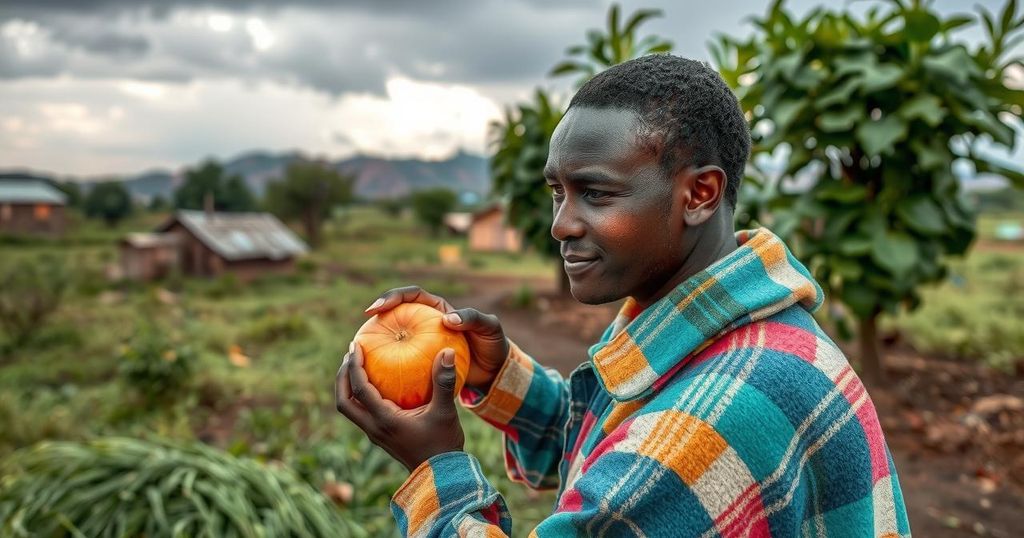Malawi has faced severe challenges due to climate change, experiencing economic losses of USD 1.19 billion from disasters like Cyclone Idai and El Niño. Recovery costs are estimated to reach USD 1.7 billion, with a focus on rebuilding agriculture. Recent cyclones have led to extensive damages and personal tragedies, jeopardizing development goals set forth in “Malawi 2063”. Calls for increased climate finance emphasize the need for global assistance in addressing these severe impacts.
Malawi has been severely impacted by climate change-induced disasters over the past six years, suffering economic losses estimated at USD 1.19 billion from events such as Tropical Storm Ana and Cyclones Idai, Gombe, Freddy, and most recently, El Niño. Fedson Chikuse, Deputy Director for Recovery at Malawi’s Department of Disaster Management Affairs (Dodma), states that the recovery cost is projected at USD 1.7 billion, with a significant focus on rehabilitating the agriculture sector, a vital component of the nation’s economy.
According to the World Meteorological Organization’s report for 2023, African nations are losing 2-5% of their GDP annually due to climate-related hazards, and adaptation costs in Sub-Saharan Africa may reach USD 30-50 billion annually over the next decade. The devastation from Cyclone Idai in 2019 is a grim reminder, claiming lives and widespread livelihoods destruction. Pilirani Mtupa, a resident of Nsanje district, recounts the loss of her home and means of income due to repeated disasters in recent years, severely impairing agricultural activities.
In 2022, Tropical Storm Ana exacerbated the situation, resulting in extensive destruction across multiple districts, while over 115,000 hectares of crops were ruined, affecting hundreds of thousands of people. Cyclone Freddy followed in March 2023, marked by its record-long duration and catastrophic flooding. Rosebay Suman from Machinga district lamented the personal losses endured, emphasizing the profound psychological and economic impacts of climate calamities.
Malawi’s President Lazarus Chakwera declared a state of disaster in response to the recent impacts of El Niño, which has adversely affected nearly two million farming households. The ambitious development agenda “Malawi 2063” aims to transform the country into an upper-middle-income nation by 2063 but is currently threatened, as articulated by Director General Thomas Chataghalala Munthali who noted that these disasters jeopardize projected economic growth.
Former President Joyce Banda has underscored the necessity for increased international support and climate finance, advocating for substantial funding to help mitigate and adapt to climate change. The cumulative effect of frequent natural disasters places Malawi at a critical juncture, with its socioeconomic goals at great risk, necessitating immediate and effective support to build climate resilience for the future.
The article outlines how relentless climate-related disasters in Malawi are impeding the nation’s socioeconomic progress, particularly in agriculture. The increasing frequency and severity of events such as cyclones and droughts have necessitated substantial recovery funds and have raised concerns regarding future economic goals under the development framework “Malawi 2063”. The importance of international financial assistance for climate adaptation and disaster relief is also emphasized, illustrating a pressing need for global solidarity in addressing climate change impacts.
Malawi faces significant challenges as extreme weather events threaten its development aspirations. The economic toll of disasters and the projected recovery costs undermine progress towards becoming a self-reliant, industrialized nation by 2063. As articulated by key figures like Joyce Banda and Thomas Chataghalala Munthali, immediate international support for climate finance and robust strategies for resilience building are critical for the nation’s survival and development amid escalating climate threats.
Original Source: dialogue.earth






